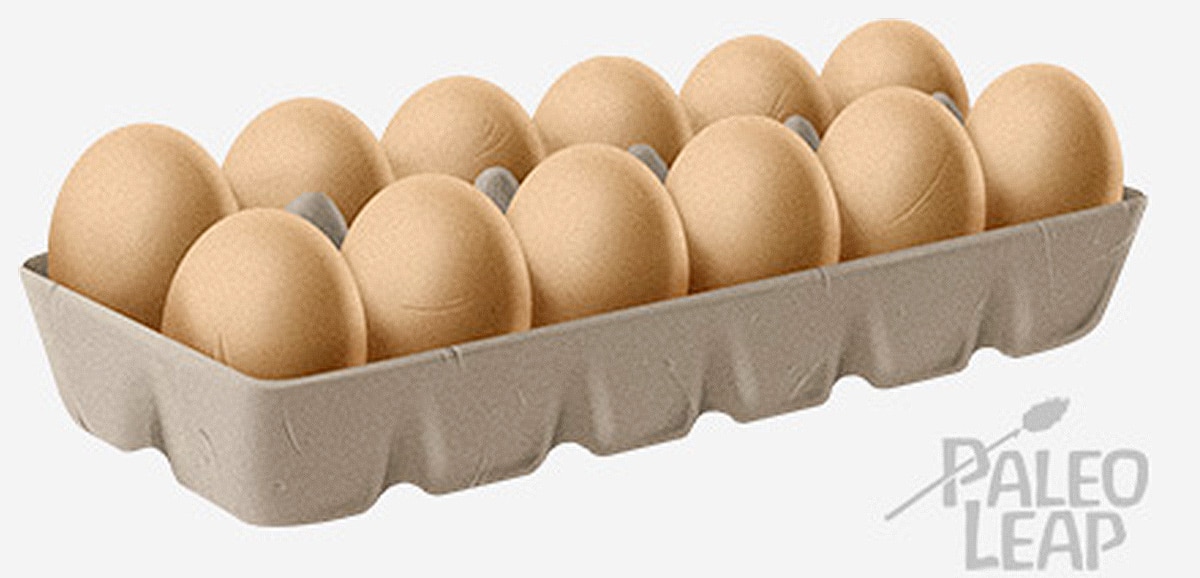“But eating that much butter can’t be healthy. What about your cholesterol?”
If you’ve ever tried a Paleo or keto diet, this is a pretty familiar response - even more so if you’re doing a relatively meat-heavy version of a low-carb plan and your plate looks like the Food Pyramid Guide to What Not to Eat.
Here’s the thing, though: nobody actually has any reason to be “worried about your cholesterol” on a low-carb Paleo diet.
Studies actually show that low-carb or keto diets don’t cause dangerous changes to cholesterol, blood pressure, or all the other numbers that researchers typically use to measure heart health. Your HDL will be just fine without the whole-wheat bread! Take a look at 5 key biomarkers and some studies showing that low-carb diets don’t cause unwelcome changes.
1. Blood pressure
Blood pressure is a big sign of cardiovascular health, but you won’t send yours through the roof by eating a low-carb diet.
This study is a meta-analysis from 2006. It basically reviewed a bunch of studies comparing low-carb to low-fat diets. The authors concluded that after 6 months, people on low-carb diets had slightly better outcomes for blood pressure, but after a year, both diets did about equally well.
Since 2006, there have been lots more studies, including this one - on average, keto reduces blood pressure just as well as any other reasonably healthy diet.
If your blood pressure is already normal and you want to keep it that way, take a gander at this study. Researchers gave women either a keto diet (20 grams net carbs, going up to 40-60 if they stayed in ketosis) or a low-fat diet. The women had normal blood pressure to begin with, and after 6 months women in both groups...still had normal blood pressure. All that fat and protein completely failed to make them hypertensive and sick.
In other words, low-carb diets don’t raise blood pressure and do help lower it in people who start low-carb with high blood pressure. Keto isn't just not-bad; it's good!
2. Cholesterol

Extremely abbreviated overview of cholesterol: there are two main types. LDL cholesterol is often called “bad cholesterol” and HDL is often called “good cholesterol.” But in reality the issue is more complicated - LDL comes in different sizes that all have different effects. And the real problem might be oxidized (damaged) LDL, not just LDL on its own. It’s actually pretty complicated and not totally clear what kind of cholesterol is associated with higher cardiovascular risk, and to what degree.
If someone starts getting on your case about how “your diet is bad for your cholesterol,” they might mean any or all of the above - or they might just be repeating something they don’t understand without really knowing what they mean. Dietary cholesterol doesn’t raise blood cholesterol, so if they’re just concerned that you’re eating eggs, they can rest easy.
In fact, low-carb diets actually have benefits like…
- High HDL and higher ratio of HDL to total cholesterol - in this study, the researchers tested three low-carb diets: standard, plant-based, and animal-based. All three increased HDL cholesterol without increasing LDL. That’s a sign of better cardiovascular health, not worse.
- Low amount of small dense LDL. Small dense LDL is much more strongly connected to heart disease risk than total LDL. This study compared low-carb and low-fat diets and found that only the low-carb diet increased average LDL particle size.
In some studies, low-carb diets do slightly increase total LDL, but as noted above, this isn’t a super reliable indication of cardiovascular risk. Also, this might simply be a result of the low fiber content in many low-carb diets: fiber lowers LDL cholesterol, so if your fiber intake drops off a cliff when you start eating keto, that might have ramifications for your LDL numbers. This is simple to fix - low-carb diets don’t have to be low in fiber.
3. Apolipoprotein B (ApoB)
Cholesterol in your blood is carried around on lipoproteins. Lipoproteins can be high-density (HDL) or low-density (LDL) - that’s where HDL and LDL cholesterol got their names.
Apolipoprotein B (ApoB) is a protein found in the LDL particles that carry LDL cholesterol. As this study explains, the reason why LDL cholesterol is associated with heart disease risk might very well be the lipoproteins, not the cholesterol they carry. Measuring ApoB is a way to measure just the lipoproteins, not the cholesterol. The study reviewed the evidence and found that ApoB is a much better indicator of heart problems than any kind of cholesterol.
So how do low-carb diets affect ApoB? In general, they don't do much in either direction. Studies (one, two, three) haven’t found any statistically significant differences between low-carb and low-fat diets for ApoB. Neither type of diet seems to work miracles, but it’s not like you go keto and your ApoB starts skyrocketing. Nothing to worry about here.
4. Non-traditional biomarkers (adiponectin and ICAM-1)
This study took a different and interesting approach - instead of going for the standard cholesterol, blood pressure, and triglycerides, the researchers looked at a few non-traditional markers of heart health. The point isn’t necessarily to replace the usual numbers, but to give a more complete picture of cardiovascular risk.
Specifically, the researchers assigned 148 obese people to either a low-carb or a low-fat diet for 1 year. They looked at a few inflammatory markers other factors like..
- Adiponectin, a hormone involved in insulin function and weight - it also may be protective against cardiovascular problems. You want more of this one.
- Intercellular adhesion molecule-1 (ICAM-1), a marker of how well the walls of your blood vessels are working. Less is better with ICAM-1.
Adiponectin increased in both groups, but it increased more In the low-carb group, ICAM-1 increased in the low-fat group but not in the low-carb group. There were no differences in any of the other markers.
The researchers also analyzed the effects of weight loss - the low-carb diet did cause better weight loss, but that couldn’t explain all of the improvement. This suggests that low-carb is at least as good - if not better - for heart health than a low-fat diet, and not just because it improves weight loss.
5. Triglycerides

Having high triglycerides is almost certainly a sign that something is going wrong - but going low-carb doesn’t raise triglycerides; it actually lowers them.
This meta-analysis confirmed that low-carbohydrate diets don’t just not raise triglycerides; they actually lower them more effectively than low-fat diets.
Another common triglyceride-related biomarker is the ratio of HDL cholesterol to triglycerides - in this study, a low-carb diet (under 40 grams/day) was even better for the HDL:Triglycerides ratio than a low-fat diet.
The new heart-health diet: less bread, more bacon? You could do a lot worse!
Summing it Up
If you just want one study to send to people “worried about your heart,” try one of the above. And if you want to go full nutrition nerd and start explaining intercellular adhesion molecule-1 to your grandma, more power to you! But the point is that low-carb or keto diets don’t increase cardiovascular risk factors - in fact, sometimes they even outperform low-fat diets.





Leave a Reply